Zinc is a trace miners that is essential to many processes in the body. Being aware of the early warning signs of deficiency can help you avoid health problems, especially recurrent colds and poor immunity. But let's take a look at what else Zinc Deficiency can cause.
What are some common zinc deficiency signs?
- Constant colds and flu
- Poor sense of taste or smell
- Stretch marks
- Acne
- White spots on the nails
- Poor growth – mostly in children
- Hair loss
- Anorexia
- Poor wound healing
- Chronic and severe diarrhoea
- Dry skin
What causes a Zinc deficiency?
Phytates that can be found in wholegrain, rice, corn and legumes can reduce absorption. This means that strict vegetarians and vegans are at risk of low zinc as these foods often contribute highly to their diet.
Zinc absorption is impaired by:
- iron, copper and calcium
- Oral contraceptive pill
- Diarrhoea – people with persistent diarrhoea can become deficient. This can include people with inflammatory bowel disease and other digestive conditions with impaired absorption.
- Diabetes, liver or kidney disease
- Caffeine and high alcohol intake
- Antacids and antibiotics
- Stress – zinc decreases and copper increases in stress
What foods are high in Zinc?
- Animal proteins such as chicken, lamb, beef, eggs
- Fish and seafood especially oysters
- Vegetarian sources include nuts, legumes, wholegrains, miso, tofu and more
- Sea vegetables like kelp and spirulina
Be aware that overdoing it with zinc is also a bad thing. Zinc toxicity symptoms include nausea, vomiting, loss of appetite, abdominal cramps, diarrhoea and headaches. It's best to be under the guidance of a Nutritionist to build Zinc levels safely.
Take some action.
Besides this simple list of foods high in Zinc, getting a Zinc test from a nutritionist can help you monitor your Zinc levels. A nutritionist can also determine if there's any heavy metals blocking your absorption of Zinc.
To speak to our Nutritionist, Linda Funnell-Milner, call 9938 1090 today or book an appointment with her online today!


